Eco-Challenge Fiji 09 - Mud and Water
Eco-Challenge Fiji:
World’s Toughest Race
Friday, September 13th - Sunday, September 15th
Spoilers: None
The bike to start out Stage 3 began rather decently. It was day four. It had stopped raining and the sun was up. The bike was again extremely hilly on dirt roads, but Team US Military was making good progress. Spangler requested a team break early in the ride to switch from a brutally chafing pair of triathlon shorts to a backup pair of compression underwear. Although this fixed his bike discomfort issues, he would spend much of the remainder of the race wearing only his underwear and team jersey. The team was making good time now. However, as the day progressed, the roads became steeper and muddier.
The mud was just caking onto the wheels, adding 40 pounds of weight and preventing any rolling. Joshua, struggling to push his bike downhill, watched as his rear wheel--covered in mud--ripped a saucer-sized rock from the ground as it rolled up.
Eventually Team US Military caught up to several other teams and was in a mixture of riding and pushing the bikes. The mud from the rain was really bad now and almost impossible to ride. Team Costa Rica began leapfrogging the military team. The Costa Ricans, experienced in “riding” in these conditions, were hiking fairly rapidly with their lightweight, hardtail mountain bikes on their backs. Team US Military, having opted for full suspension bikes with mandatory gear loaded into bikepacking bags attached to them, were reticent to admit fault in the decision tried to ride for a little longer before realizing riding was futile.
At the top of one hill along the ridgeline was a volunteer cautioning that two Eco-Challenge Fiji production team vehicles were stuck in the mud down at the bottom of the saddle. Team US Military passed the scene of the imperiled vehicle just before an Eco Challenge helicopter landed to extricate the truck’s crew. The team caught up to Team Ireland AR, which had passed them during their sleep at Camp 2. Mark Lattanzi had just broken his rear derailleur in the mud—not good. Not twenty minutes later the same thing would happen to Caitlin. Luckily the derailleur bent and still worked on a single speed.
The mud was so bad the wheels would not roll up OR down the hills. The mud was just caking onto the wheels, adding 40 pounds of weight and preventing any rolling. Joshua, struggling to push his bike downhill, watched as his rear wheel--covered in mud--ripped a saucer-sized rock from the ground as it rolled up. The glue-like mud did not let go of the five pound rock until it rolled into the bike frame, which was struggling to shed the massive buildup of mud, gravel, and other debris from the tires as they roll-skidded along the road. At this point, to prevent anymore bike issues, Team US Military decided to follow suit with Team Costa Rica, reorganized their gear, and began carrying their bikes.
The demoralized and mud-covered team arrived at the top of the ridge just as the sun was setting. It was a beautiful sight to see, despite the miserable circumstances all about them.
Covered in mud from head to toe and completely miserable, the segment which reportedly took other teams six hours in dry conditions, would prove to be the hardest bike leg in a race the members of Team US Military had ever done. The World’s Toughest Race: Eco-Challenge Fiji was proving itself to competitors.
As night fell, the team grew more miserable. The mud was calf deep, and extremely slippery. With their bikes on their backs, and incredibly slippery mud underfoot, progress was extremely slow.. On top of that, it was impossible to tell on the map how much further they had to go. At one point, they just sat in the mud and took a twenty minute nap. They had been on the grueling bike leg for over twelve hours and were exhausted. Covered in mud from head to toe and completely miserable, the segment which reportedly took other teams six hours in dry conditions, would prove to be the hardest bike leg in a race the members of Team US Military had ever done. The World’s Toughest Race: Eco-Challenge Fiji was proving itself to competitors.
River crossings were often up to the chest in cold water.
Eventually, the members of Team US Military began to see some flagging tape which gave them some hope that the end of the muddy bike-toting section was near. About an hour later they reached the paved road they had been long seeking, and could not have been happier. They rode downhill for a few miles, mud slinging off of their bikes all along, and pulled into the CP at midnight, exhausted and still layered in the tar-like sludge.
The whitewater section was next, but teams could not get on the water until 0600. So Team US Military planned to use their last two mandatory sleeps at the CP. They attempted to clean the mud off their bikes in the nearby river for the next hour and a half. The mud was awful—it stuck onto the bikes like glue and was impossible to completely wash off.
After cleaning their bikes, the men set up their flyweight hammocks and Caitlin laid on the ground in her bivy. They slept for about three hours, but it was not what you would call quality sleep—they were all cold and because the ground was wet from all the rain, so too was Caitlin.
Team US Military awoke at 0500 and packed their bikes. While getting ready for the whitewater section, they realized that they no longer had the expedition guidebook, which had the clues in it for the next section. Team Ireland AR had come in sometime after them in the night and were currently cleaning their bikes in the river. They left their guidebook by the bikes for us to copy what the American team needed and they were on their way.
The team completed a short trek to the whitewater section and were the third team on the water that morning. Spangler was going to be the rafting guide and steer their boat, so he gave a short safety brief in front of the Eco-Challenge Fiji production team cameras prior to setting off. “Everyone keep your hand on the T-grip. And if you fall out of the boat, get back in." A man of few words.
It seemed to them kind of ridiculous that they would sleep through Class 3 rapids, but it also seemed like a good place to rest at the time.
The rafting was incredibly fun--Class 2 and 3 rapids that Team US Military, helmed by Spangler, navigated well. The team was tired, and took turns sleeping in the raft. It seemed to them kind of ridiculous that they would sleep through Class 3 rapids, but it also seemed like a good place to rest at the time.
The team was fairly slow on the raft section. The Eco-Challenge Fiji whitewater leg team had informed Caitlin that earlier teams had been finishing the section in around four hours. It took Team US Military five and a half. Team Costa Rica caught and passed the military team near the end of the section.
Team 44 sleeping in a calm stretch.
The last few sections of the race formed a giant loop, and so the team was doubling over the racecourse from a day prior. As Team US Military got to the takeout of the whitewater rafting section, they saw Team Stray Dogs gearing up for the horrendous bike section the military team had finished a day ago. The lagging team was the second to last team on the course, and had apparently already been warned about the mud. Knowing what awaited them and wishing them luck, Team US Military crossed the river.
The river crossing was pretty harrowing—very rocky with a swift current. Caitlin, the shortest member of Team US Military, did not like it at all. At Joshua’s instruction, the men employed team water crossing tactics. The taller members of the team banded together in a V-pattern to shield her from the swift current. The additional safety proved effective, and they made it to the opposite shore shaken but not stirred.
After crossing, they spent about thirty minutes on foot care at this point. It was hard to stop and Caitlin later admitted to having whined to the team about it, but it was an investment that would pay out in full. Wet feet would become a huge issue for many teams later in the race, so it was good that Team US Military took care of it when they did.
Caitlin Thorn is a guest blogger here. Caitlin Thorn is an accomplished endurance athlete, with numerous accolades as a distance runner, Olympic and half-Ironman distance triathlete, and adventure racer. Caitlin is a Track and Field Division I NCAA All-American, with numerous finishes in the half-marathon and marathon distances. She has been adventure racing for three years and has earned podium finishes at over 6 races and qualified for the 2019 USARA National Championship. Caitlin enjoys world travel and hiking, and when not pursuing outdoor adventure she serves as an active duty officer and engineer in the U.S. Air Force.
Caitlin can be followed via Facebook @caitlin.aub











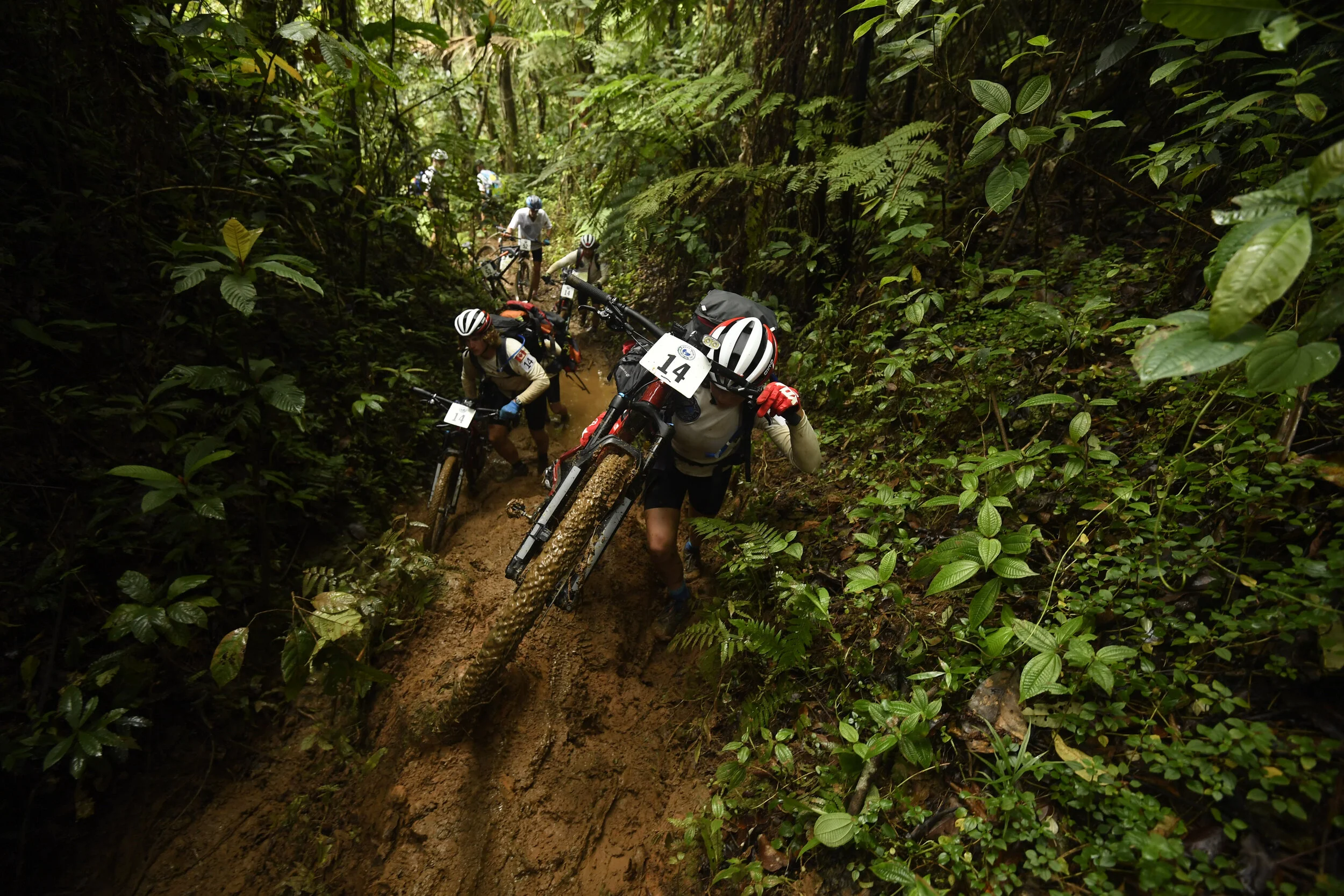



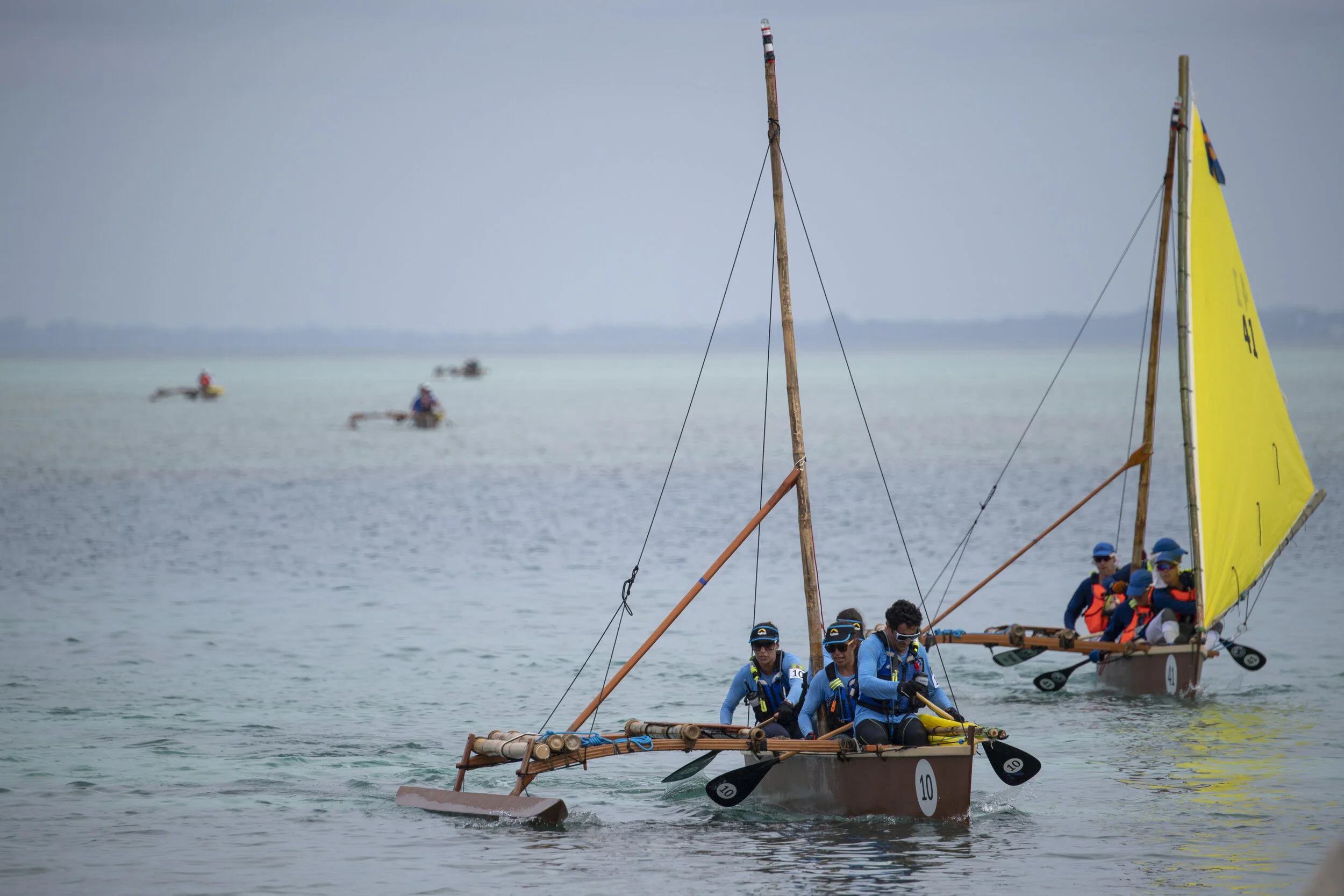
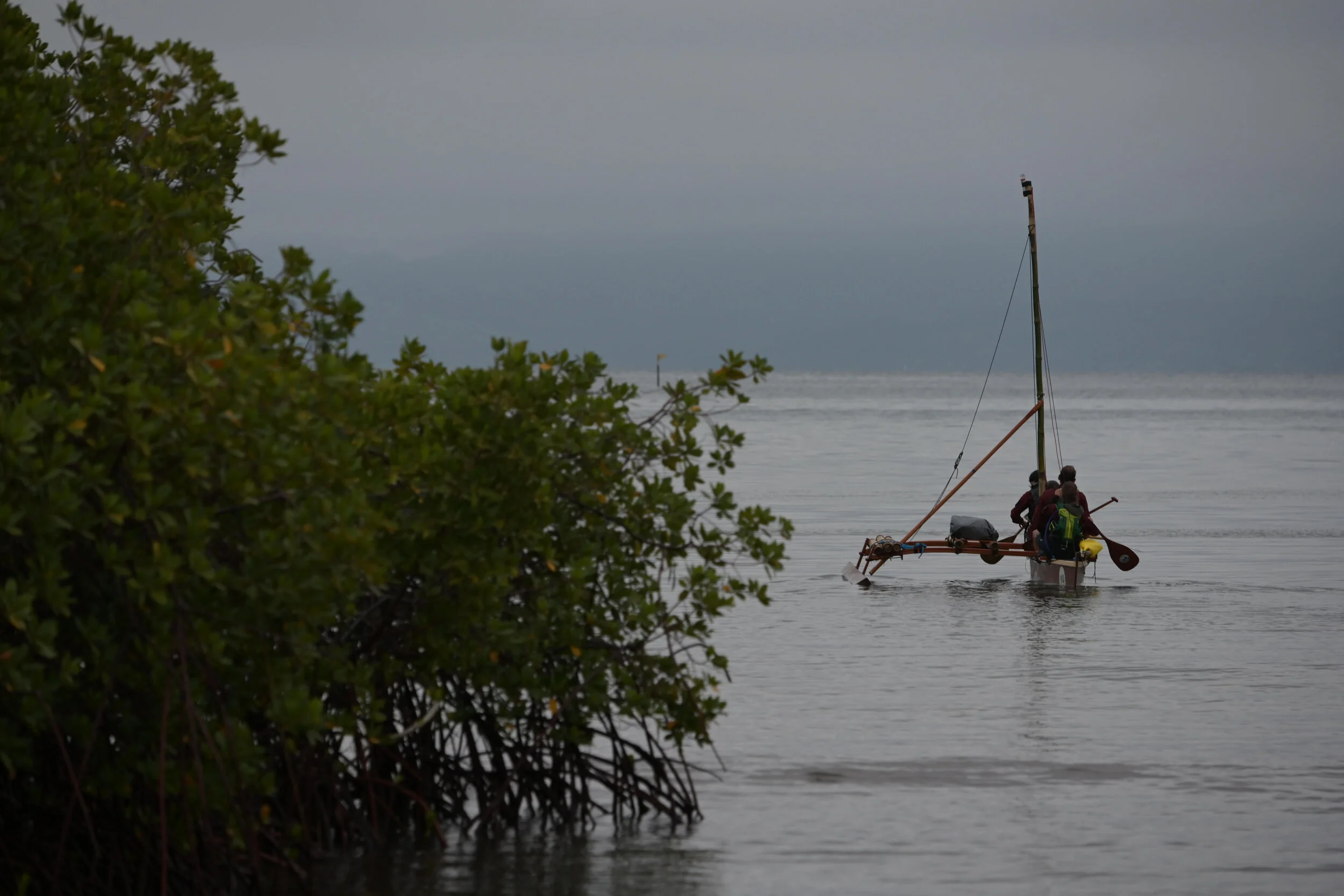
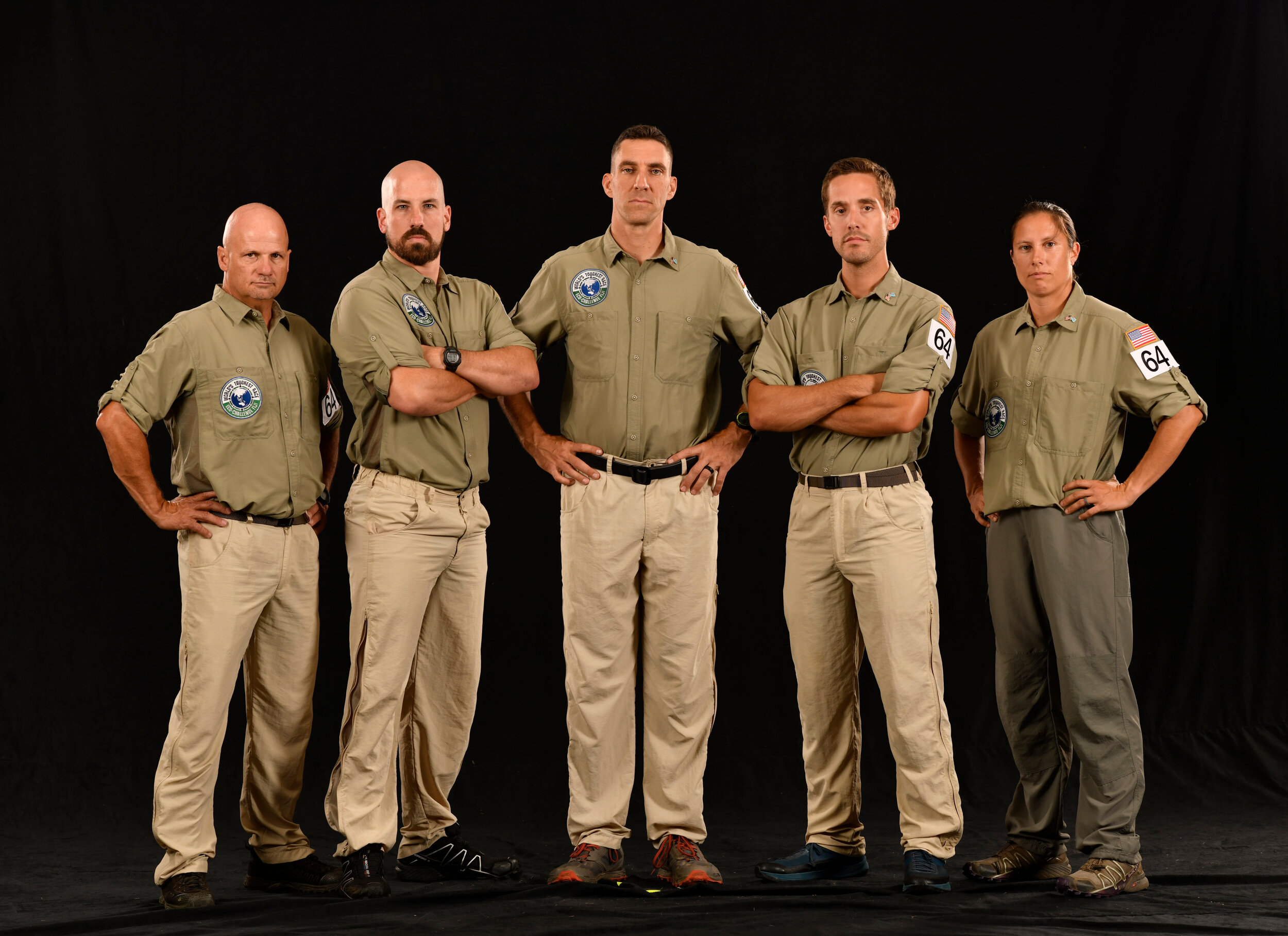

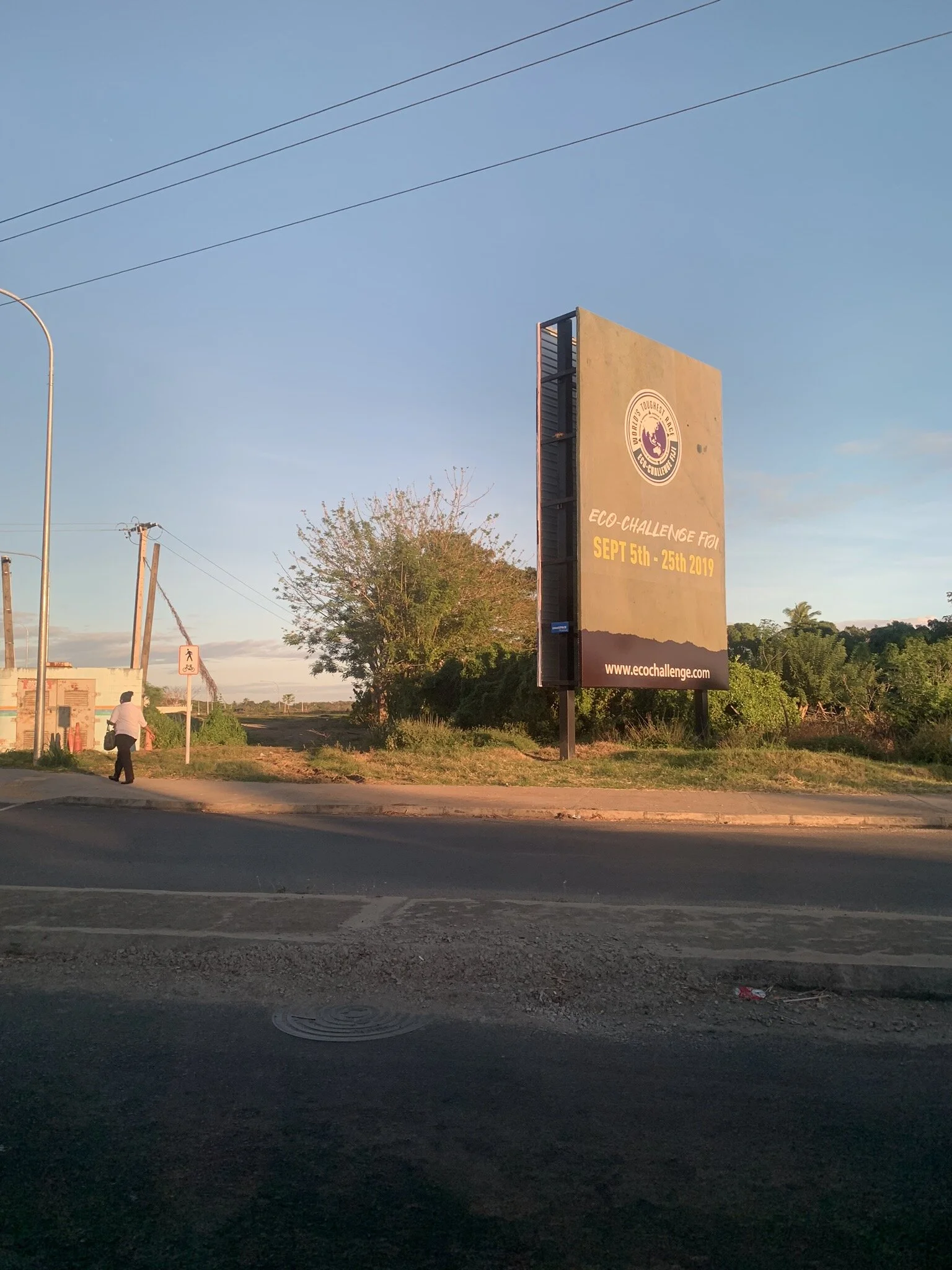
Eco-Challenge Fiji never promised to be an adventure race. Its claim was “The World’s Toughest Race”. Despite the lack of navigational challenges and jungle whacking (which was anticipated to be the hardest part of the race), Eco-Challenge Fiji was still the hardest race the members of Team US Military had ever done. The biking was tough, with incredible elevation gains and losses, and the weather added to the suck factor. This course tested the limits of racers’ mental capacity and their will to finish. Traveling across and along rocky rivers was tedious and broke some of the hardest people down. Continually slipping on rocks and banging up shins and feet tested the bounds of human fortitude and willpower.